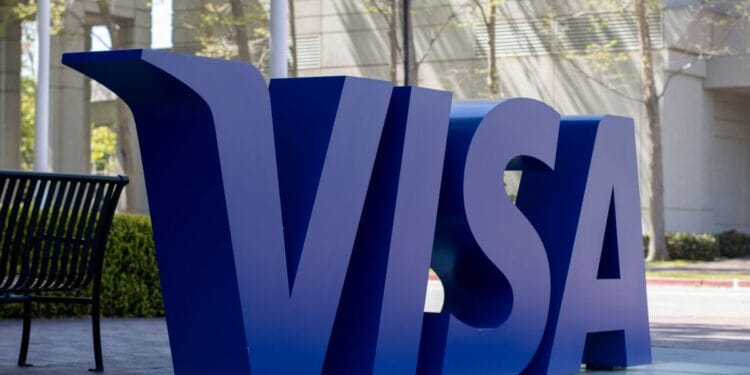Visa Token Deadline Creates Critical Urgency for Merchant-Initiated Transactions
The July 30, 2025 Visa token deadline has fundamentally changed how merchants process recurring payments and subscription services. Standing Instruction MITs initiated with Device Tokens provisioned after July 30, 2025 will be declined, requiring merchants to transition to Card on File tokens to maintain seamless payment processing.
This deadline creates immediate business risks for merchants who haven’t updated their payment systems. Companies processing recurring billing, subscription services, or installment payments face potential transaction failures that could disrupt revenue streams and damage customer relationships.
However, merchants still have options to ensure compliance and maintain operational efficiency in the evolving digital payments landscape.
Understanding the Visa Token Deadline Impact
What Changed After July 30, 2025
Visa discontinued support for Standing Instruction merchant-initiated transactions (MITs) that use Device Tokens provisioned after July 30, 2025. This change specifically targets recurring payment scenarios where merchants initiate transactions without direct customer interaction.
The restriction applies to three critical business scenarios:
- Recurring payments for subscription services and membership fees
- Installment transactions for split payments and financing arrangements
- Unscheduled credential-on-file payments for variable billing and top-ups
Why Visa Made This Change
Device Tokens are tied to specific customer devices, causing payment disruptions when consumers upgrade their phones or tablets. Card on File (COF) tokens solve this problem by operating independently of customer devices, ensuring payment continuity regardless of hardware changes.
Visa’s tokenized transactions have demonstrated a 4.6 percent lift in authorization rates globally compared to traditional PAN transactions, making this transition beneficial for both security and performance.
Delayed Enforcement Provides Temporary Relief
Current Status Update
According to a February 20, 2025 announcement, Visa delayed the enforcement of device token restrictions until further notice. This means Apple Pay device tokens created after July 30, 2025 will continue working for Standing Instruction transactions temporarily.
However, this delay comes with important caveats that merchants must understand:
- Visa provides no guarantee that grandfathered device tokens will work well or continue working forever
- The company may announce a new compliance deadline at any time
- Device-bound tokens remain subject to their natural limitations, including device upgrade disruptions
Business Risk Assessment
Despite the delayed enforcement, smart merchants are moving forward with token migration for several compelling reasons:
Revenue Protection: Device token failures can cause up to 44% of digital transaction abandonment according to industry data, directly impacting subscription revenue and customer lifetime value.
Operational Efficiency: Network tokens drive a 30% reduction in fraud online compared to PAN transactions and deliver a 4% uplift in authorization rates, improving both security and customer experience.
Future-Proofing: Early adoption positions businesses ahead of any surprise deadline announcements while avoiding last-minute technical scrambles.
Technical Requirements for Compliance
Card on File Token Implementation
Merchants must work with payment providers to implement COF token support for all Standing Instruction scenarios. COF tokens are delinked from cardholder devices, ensuring standing instruction MITs aren’t disrupted when consumers upgrade their devices.
The implementation process typically involves:
- API Integration Updates: Modifying existing payment flows to request COF tokens instead of device tokens
- Database Schema Changes: Updating customer profile storage to accommodate new token formats
- Testing Protocols: Validating recurring payment functionality across different card types and scenarios
Apple Pay Specific Considerations
Apple introduced Merchant Tokens (MPANs) linked to users’ iCloud accounts, providing consistency across devices as an alternative to Device PANs (DPANs). Merchants using Apple Pay for recurring payments should prioritize MPAN implementation.
The new recurring token type is available through the Apple Pay API and requires no changes to Visa Acceptance Solutions API requests, simplifying the technical transition for most merchants.
Business Impact and Action Steps
Immediate Actions Required
Audit Current Payment Flows: Review all recurring payment, subscription, and installment processing to identify Device Token dependencies that could cause future disruptions.
Contact Payment Partners: Merchants are advised to work with their payment providers or wallet providers to initiate the process toward supporting merchant COF tokens before any surprise deadline announcements.
Prioritize High-Risk Scenarios: Focus first on high-value recurring transactions and critical subscription services where payment failures would cause the most business damage.
Long-Term Strategic Benefits
Beyond compliance, the token transition delivers measurable business value:
Enhanced Authorization Rates: Visa reports over 3% authorization rate improvement with tokens for Card-not-Present transactions, directly increasing successful payment processing.
Fraud Reduction: Tokenized transactions provide superior security compared to traditional payment methods, reducing chargeback costs and operational overhead.
Customer Experience: Eliminating device-related payment failures improves subscription retention and reduces customer service inquiries about failed transactions.
Industry Context and Future Outlook
Payment Tokenization Growth
Visa operates tokens in 198 countries across thousands of issuers and merchants, demonstrating the widespread adoption of tokenization technology. Projected 2025 global retail ecommerce revenue of $6.4 trillion underscores the critical importance of reliable digital payment processing.
Compliance Timeline Considerations
While Visa delayed enforcement, merchants should expect future deadlines as the payments industry continues evolving toward enhanced security standards. Proactive compliance reduces technical debt and positions businesses for success in the digital-first economy.
Take Action Before the Next Deadline
The Visa token deadline represents both challenge and opportunity for merchant payment operations. Companies that act decisively can improve authorization rates, reduce fraud, and enhance customer experience while ensuring regulatory compliance.
Start your token migration today by contacting your payment processor to discuss COF token implementation. Early adoption provides competitive advantages and protects revenue streams from potential future disruptions.
Don’t wait for the next surprise deadline announcement. Secure your payment processing infrastructure now and position your business for long-term success in the evolving digital payments landscape.













